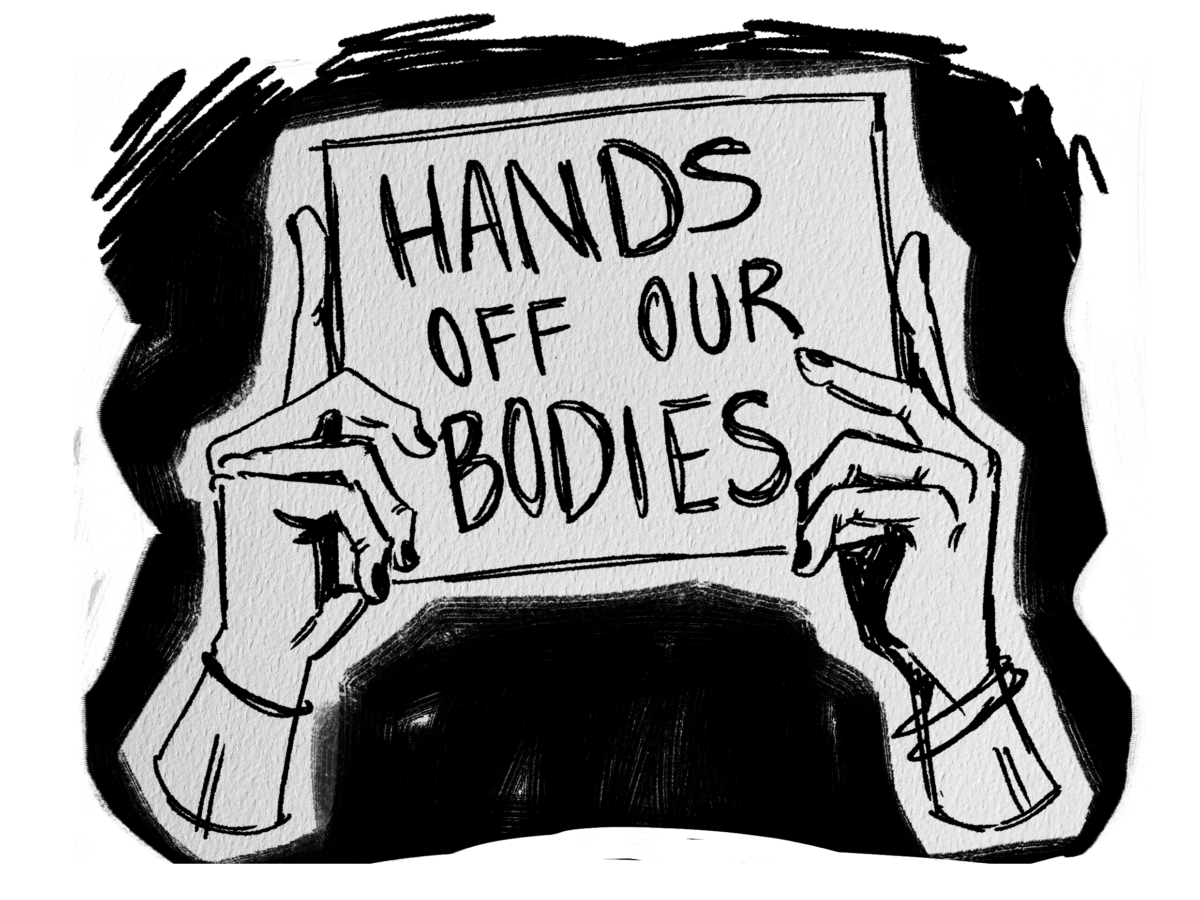Russell Brand’s lies fuel backlash against sexual abuse victims, driven by paranoia and populism.
On Sept. 18, The Onion, a satirical news organization, reported “Nation Could Have Sworn Russell Brand Was Already Convicted Sex Offender.” To those familiar with Brand’s past, a report detailing years of sexual violence was hardly surprising. His controversial rise to stardom was based on him being an objectifying womanizer.
Russel Brand’s trial in the court of public opinion has become a dire warning for the state of women’s rights in America, and an alarming example of how blind partisan loyalty has taken precedence in the American right-wing.
In recent years, Brand, an established comedian, transformed himself into a beacon of misinformation for the alt-right, and this status has become his lifeline. His anti-media rhetoric, defined by conspiracy theories and a persecution complex, has cultivated a base with an unshakable conviction of his integrity.
A day before YouTube demonetized Brand’s content, he addressed the allegations for his over 6.6 million subscribers. Understanding his paranoia-filled response—and why it worked—can shed light on the American underbelly we often struggle to accept: the growing world of online conspiracy theorists.
Heavy with misinformation, Brand’s two-minute response could be Russell Brand the actor grifting to an audience disillusioned by political institutions. Or it could be Russell Brand the YouTube conspiracist paranoid of the shadowy machinations of mainstream outlets. Or even a calculated mix of the two.
But his outlandish statements were not discarded as such. American TV host Greg Gutfeld doubted the victims’ intentions saying, “People don’t go to the cops for their own reasons.” Charlie Kirk, Ben Shapiro, and Tucker Carlson all came out with similar statements. Elon Musk tweeted: “I support Russell Brand.”
The evidence and interviews assembled by journalists detail the stories of four women Brand sexually abused, and the report is as jarring as it is conclusive: Russell Brand is a serial sexual predator. But for the millions of Americans who consume right-wing media, Brand is the victim of a witch hunt. Being demonized by the left and demonetized by YouTube energizes his base all the more, and proves to them the accuracy of his narrative. His skillful villainizing of the system makes him the victim.
What Brand’s supporters discredit as woke media lies are in fact the horrible, pervasive realities of sexual harassment and gender discrimination. And while it is easy to disregard them as radical, fringe, or downright crazy, Brand’s resilience is proof that they wield true power at the heart of American institutions.
This story is as much about party loyalty as it is about the persistence of the patriarchy. It is no coincidence that when the crime is objectifying and degrading women, the punishment is suddenly lax. This lenience towards Brand could not have occurred if rampant media skepticism and alt-right misogyny were not already commonplace in the conservative mainstream.
As partisan loyalties overshadow deep-seated misogynistic issues, the messaging from the post-Trump right is increasingly clear: fight the noble fight and you will find support from a powerful network of conservative influences. Feign conspiracy and rape allegations carry no weight.
The case of Russell Brand is a damning indictment of the American political landscape, and a terrifying alarm in the fight for women’s rights. Russell Brand is an alleged rapist and confirmed conspiracy theorist but to the American right, the latter has proven more important than the former.
